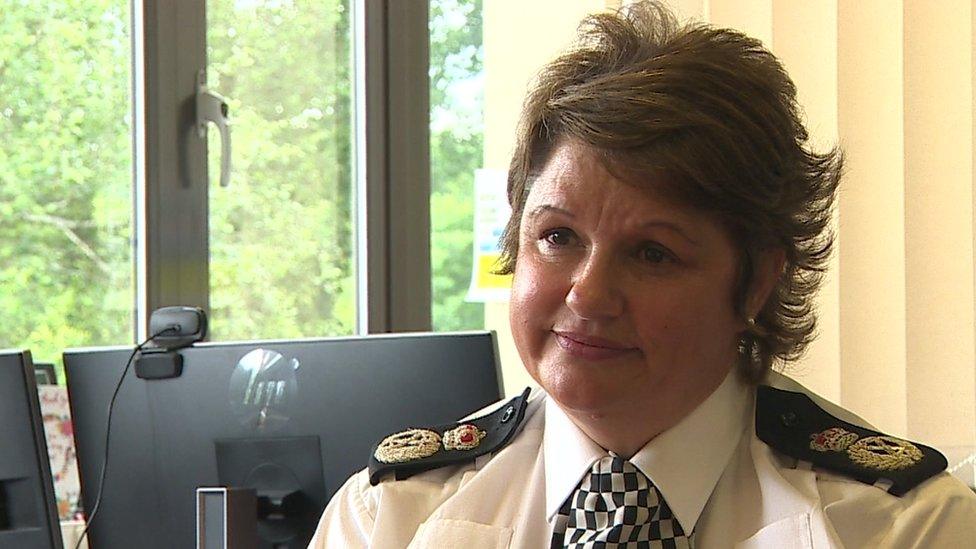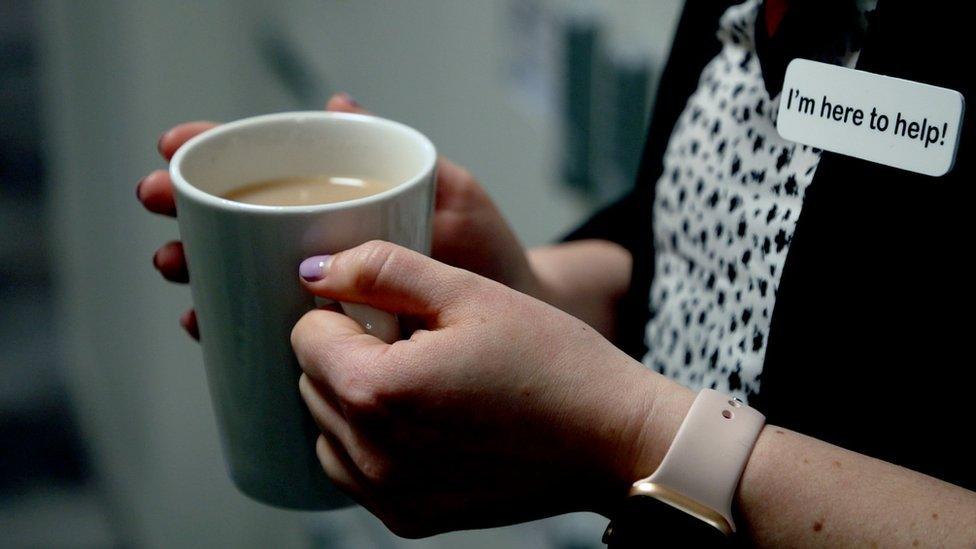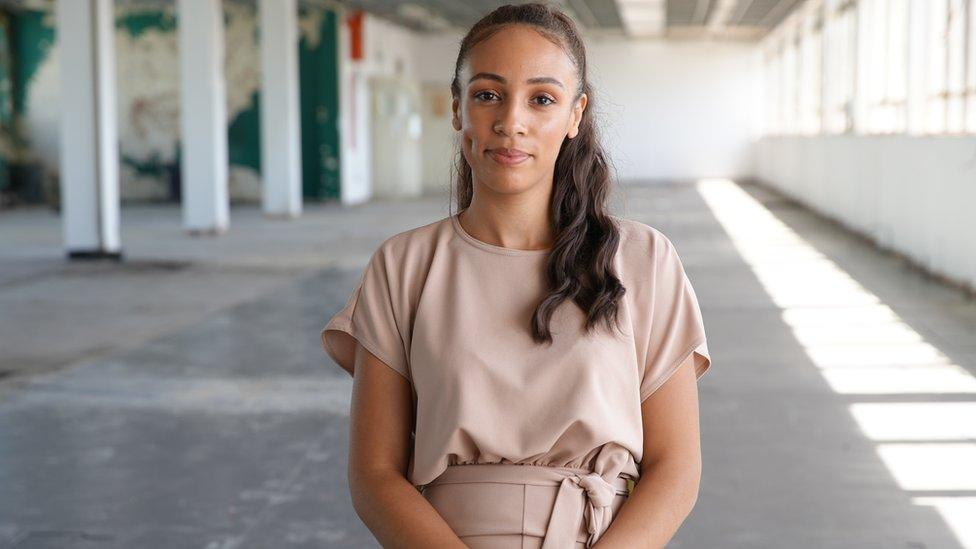Crime victims 'hesitant' to report them over court delays
- Published
Roxy Freebury has been involved with discussions over a new unit set up by Gwent Police
A victim of crime says some people are put off reporting incidents because of delays in getting justice.
More than 57,000 trials are yet to be heard in crown courts across England and Wales due to a backlog made worse by the coronavirus pandemic.
This is despite investment by the UK government to reduce the backlog.
One Welsh police force has set up a unit to help the growing number of people waiting for justice and reduce pressure on the 101 phone service.
Roxy Freebury, 24, from Newport, has twice been the victim of domestic abuse and said it was important to her safety to be kept informed.
"I had to ring the police myself and go into the police station with a friend, just to find out what was going on," she said, explaining the officer in charge of her case was on leave.
"I had just reported someone who Women's Aid said was dangerous, so I thought they [the police] would be looking out for me more. I didn't know if he was released or remanded until I chased them, then I felt like a nuisance."
'It can take a long time'
She has since been involved in focus groups with the force, to advise how they can improve services.
"I think it'll make a big difference, because if people feel sometimes the police can be a bit lax with updates and cases take a long time, they might be more hesitant to report a crime.

Chief Constable Pam Kelly believes the new unit is a "win-win" for everyone
"There's quite a misconception that the police will do nothing because sometimes it can take a long time.
"But now they know there's a unit to provide support for victims all the way through, even if your case takes longer."
Gwent Police Chief Constable Pam Kelly said 19 specialist officers answering calls and keeping victims updated would remove about 12% of calls to the 101 service.
"It's a win-win," she said. "It speeds up 101 for the public, but more importantly makes sure we have the right service at the right time for victims.
"Victims often feel the most vulnerable but actually they are the most powerful part of the criminal justice system - without them coming forward we will never be able to bring offenders to justice."
Earlier this year victims' commissioner Dame Vera Baird warned the Commons Justice Select Committee that victims would drop out of the process because of delays in the courts.
Scott Bowen, a criminal solicitor in Newport, said a crime reported today might involve a 12 to 18-month delay before a decision is made to charge. It could then be another year before it comes to crown court.
"There's a huge impact not just on justice for victims of crime but also those accused of crime," he added.
"If you are a professional accused of a sexual offence, assault or dishonesty, you can often find yourself being suspended by your professional bodies until the conclusion of the case.
"This [unit] is a good thing, but this is really not addressing the core of the problem.
"This is addressing one of the consequences of the backlog and a lack of funding throughout the whole justice system."
A Ministry of Justice spokeswoman said: "Major challenges remain which is why we are investing hundreds of millions to further increase capacity, including the opening of a nightingale court in Swansea to deliver swifter justice and support victims."
If you have been affected by domestic abuse, help and support is available at BBC Action Line.

HAYLEY GOES: VACCINE FRONTLINE: Hayley goes on a fact-finding mission to discern fact from fiction
STRICTLY AMY: CROHN'S AND ME: The Welsh dancing star shows us the reality of living with Crohn's disease

- Published21 May 2021

- Published23 June 2021

- Published26 February 2021
